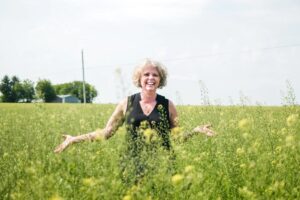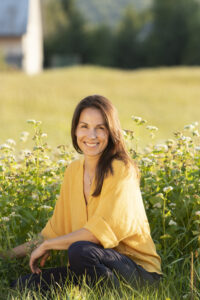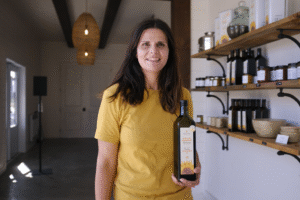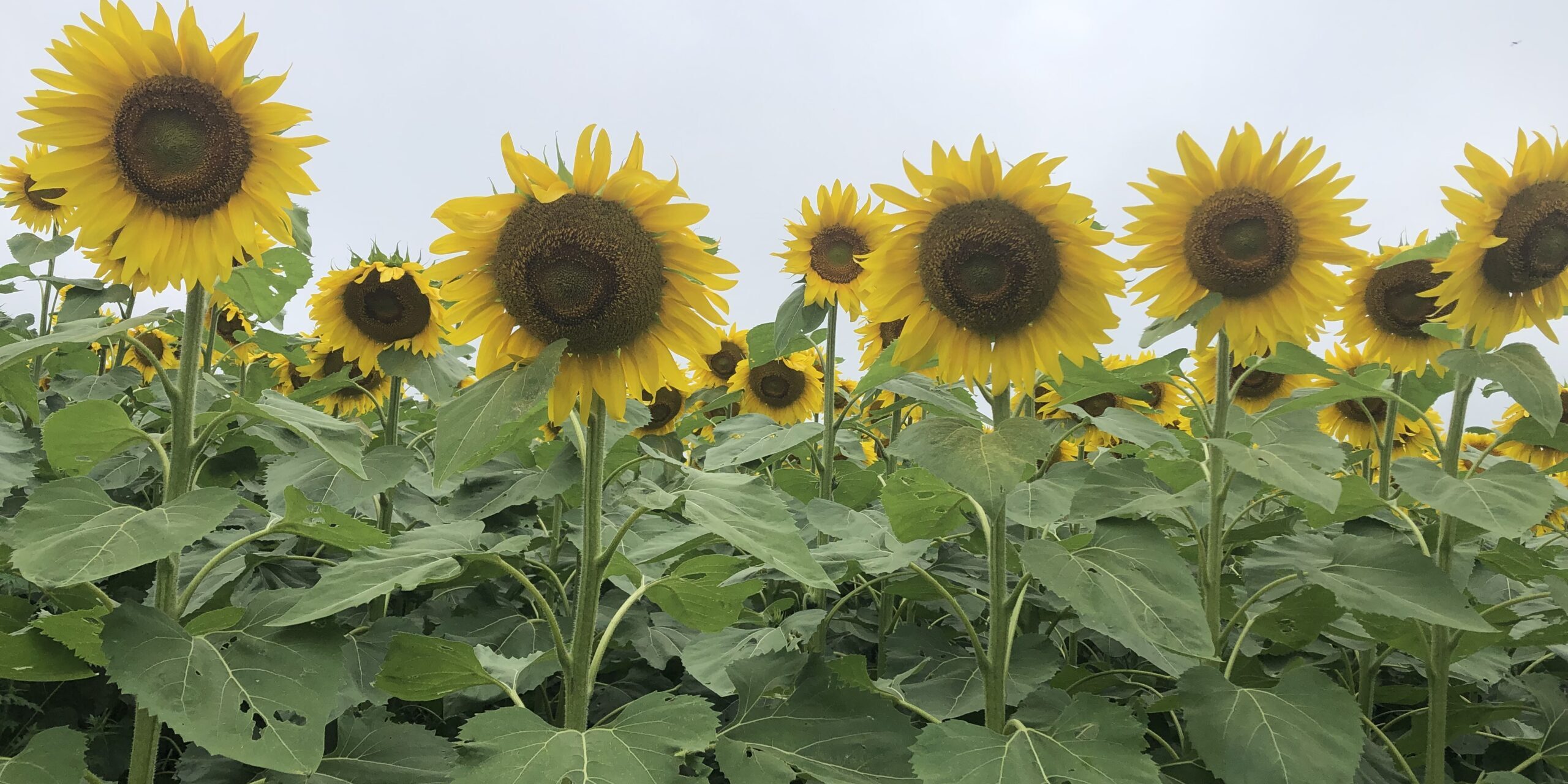International Day of Rural Women: The Women Behind Quebec’s Oils
Today, on the International Day of Rural Women, FoodBridge is proud to highlight three women who are actively shaping Quebec’s growing oilseed sector: Chantal Van Winden (Oliméga – Signé Caméline), Audrey Bouchard (Ferme TournevenT), and Joany Brodeur (L’Arôme des Champs).
Quebec’s oilseed production is still nascent, yet the sector is remarkably diverse. In a province with only a handful of oil mills, three women have chosen a bold path: producing healthy, environmentally responsible oils deeply rooted in Quebec’s terroir. Chantal, Audrey, and Joany are among the few producers and entrepreneurs transforming locally adapted seeds into oils that celebrate the richness of our landscapes and the resilience of our agriculture.
Chantal Van Winden – Oliméga – Signé Caméline (Montérégie)
In Saint-Édouard, Chantal Van Winden embodies the pioneering spirit of Quebec’s oilseed industry. In 2006, a simple encounter with camelina became the starting point of a family and entrepreneurial adventure. Eight years later, Oliméga – Signé Caméline was born. Oliméga was the first Canadian company to produce and process this northern oilseed with exceptional properties. Now, affectionately known as Madame Caméline, Chantal has become one of its greatest ambassadors.
Camelina represents a link between living soil and healthy food. Grown under regenerative farming practices, it improves soil health, fosters biodiversity, and strengthens farm resilience to climate change. With nearly 35% omega-3, camelina oil stands out as a true superfood.
Awarded multiple times for its innovation and the quality of its products — from oils to soaps and animal feed made from pressing residues — Oliméga has become a symbol of an innovative and resilient Quebec agriculture.

Audrey Bouchard – Ferme TournevenT (Saguenay–Lac-Saint-Jean)
In Hébertville, Audrey Bouchard has shown remarkable leadership since co-founding the region’s first oil mill in 2018. Everything happens on the farm, from cultivation to processing, all the way to bottling. Camelina, hemp, flax, canola, and sunflower seeds are cold-pressed on site to produce high-quality organic oils.
Ferme TournevenT is an exemplary model of polyculture and circular economy. Intercropping, such as canola and yellow peas, lentils and flax, or camelina and beluga lentils, enhances soil fertility and naturally limits weed growth. No chemical fertilizers are used, and the pressing cakes are reused to fertilize the farm’s fields. This organic and regenerative approach improves soil structure, stimulates biodiversity, and helps reduce greenhouse gas emissions.
Since 2024, the farm has also hosted the Économusée des Huiliers, an educational space where visitors can follow the entire oil-making process, from field to bottle.

Joany Brodeur – L’Arôme des Champs (Estrie)
After a career outside of agriculture, Joany Brodeur chose to return to her roots. In 2019, together with her husband, she purchased Quebec’s first organic sunflower oil mill which is now managed in partnership with her parents, long-time producers in Bromont.
On the family’s land, sunflowers have become an integral part of the crop rotation. Their organic cultivation helps regenerate soils and promote biodiversity. The bright yellow fields attract a lively fauna including bees to blue jays, a clear sign of a healthy agroecosystem.
From seed to bottle, everything is done on-site. The oil, cold-pressed and slowly decanted, retains all its nutritional qualities. At L’Arôme des Champs, nothing goes to waste. The pressing cake is reused to feed dairy cows on organic farms across Quebec.
Rich in omega-9 and vitamin E, the oil is prized for its stability when heated and its mild, slightly nutty flavor. Produced with care and conviction, it offers a local, sustainable alternative to olive oil — a reflection of the Brodeur family’s craftsmanship and commitment.

Women Cultivating Change
On this International Day of Rural Women, it’s worth reflecting on the essential role women play in transforming our food systems.
Just back from the Global Women in Agritech Summit in Belgium, Chantal Van Winden shares that the Minister of Agriculture of Wallonia emphasized how women in agriculture bring greater diversity and healthier products to market. An observation that perfectly echoes the journeys of Chantal, Audrey, and Joany — and reminds us that it is entirely possible to change our oil for one made here: healthy, sustainable, and proudly from Quebec.






